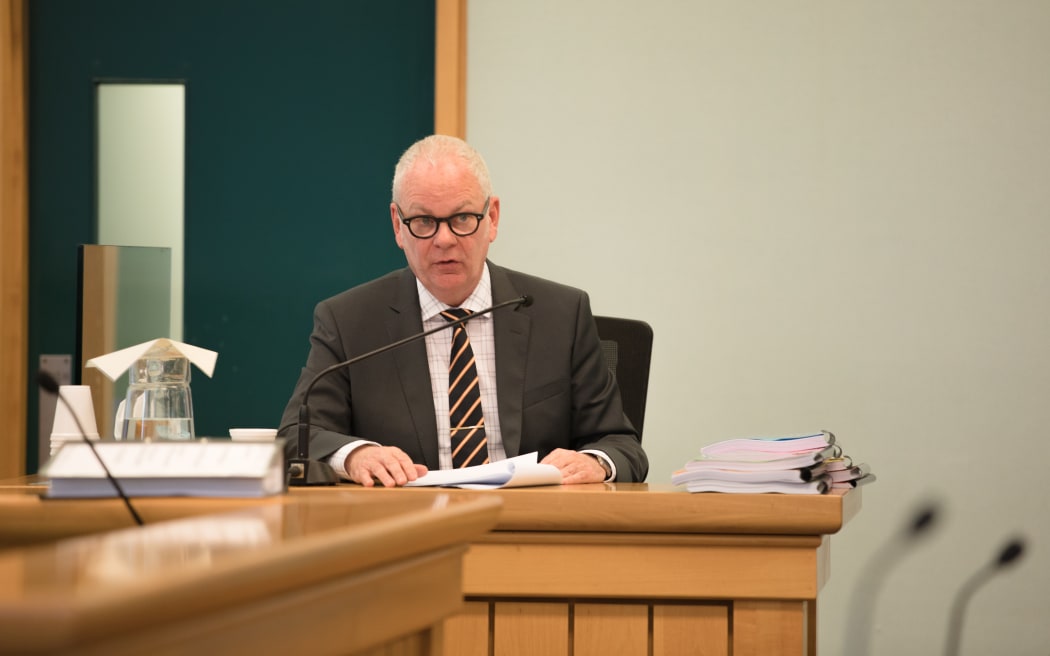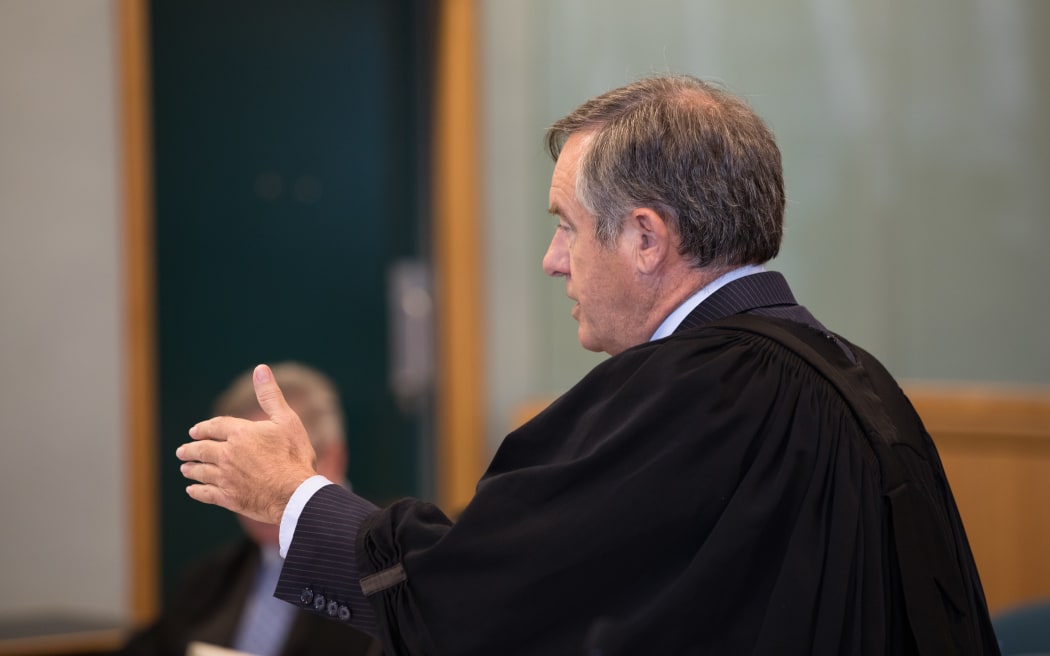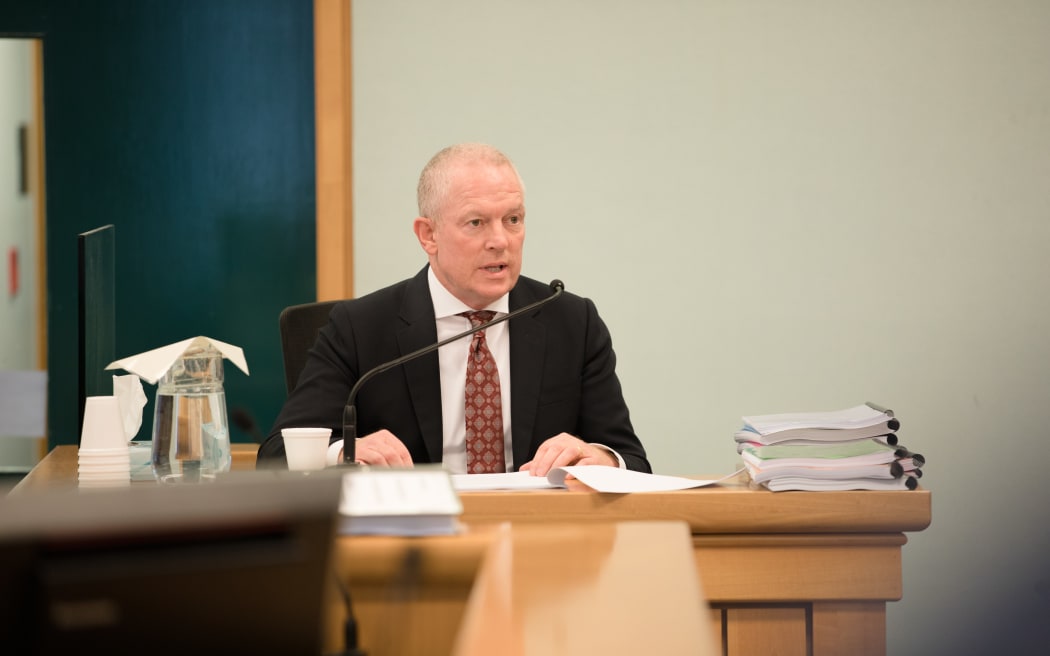The State Services Commissioner has told the High Court claims he acted politically when he briefed his minister about Winston Peters' superannuation payment are "untrue and unfounded".

States Services Commissioner Peter Hughes told the court he didn't act politically when briefing his minister. Photo: RNZ / Cole Eastham-Farrelly
Deputy Prime Minister Winston Peters is taking legal action against Peter Hughes, former Ministry of Social Development boss Brendan Boyle, and former National ministers Paula Bennett and Anne Tolley for allegedly breaching his privacy.
In the heat of the 2017 election campaign, the ministers were briefed that Mr Peters had been overpaid his pension by nearly $18,000 over seven years due to an error on his application.
Mr Peters said the use of the 'no surprises' policy for briefing ministers was a "sham" - something Mr Hughes denied.
"The allegations that I acted politically are untrue and unfounded and I absolutely reject them," he said.
Mr Hughes said political neutrality is central to his role, and he is charged with setting standards of integrity across the public sector.
He said any suggestion he acted against this principal when he briefed Mrs Bennett is false.
"I'm confident that no one, not even my family, knows what my politics are. This is something that I never discuss and I never, ever let politics enter into what I do or the decisions I make.
"Not once in the many years I have worked as a senior public servant has anyone accused me of political partiality, or anything close to it", he said.
Mr Hughes said the overpayment and the Ministry of Social Development's handling of it went to the heart of the integrity of the state sector - and happened against the backdrop of former Greens co-leader Metiria Turei's admission she made false statements to receive more benefit payments.
He said ministers have a responsibility to assure the House their ministry's have acted appropriately - and in this case - to be able to assure Mr Peters was treated equally, and without fear or favour.
Mr Peters' lawyer Brian Henry put it to him that those assurances could have been made, without naming his client.

Winston Peters' lawyer Brian Henry Photo: RNZ / Cole Eastham-Farrelly
But Mr Hughes disagreed and said that approach would have been "too vanilla" and would not have made sense in this context.
Mr Boyle also took the stand this afternoon and told the the court he too rejected allegations his briefing Ms Tolley, was inappropriate.
"I had no political motivation in deciding to brief my minister. My overriding concern was the accountability of the minister to Parliament and the potential risk to the government and MSD should questions as to the integrity of the welfare system be raised", he said.

Former MSD chief executive Brendan Boyle Photo: RNZ / Cole Eastham-Farrelly
Mr Boyle told the court it would be "non-sensical", and "erode trust" if information relevant to their portfolios were withheld from ministers because it was sensitive or had political implications.
He also said Mr Peters' claims the 'no surprises' policy shouldn't apply to operational matters is incorrect.
"I have never met a minister who did not expect to be kept abreast of any significant matter happening in their portfolio.
"The distinction between operational matters that Mr Peters is suggesting seems to confuse ministerial knowledge of operational matters with ministerial involvement in them", he said.
Mr Boyle told the court that while he was not expecting the information to get out, it was a possibility and it would have been naive to not prepare for that happening.
He will face cross examination tomorrow and then the court will begin hearing closing arguments.


